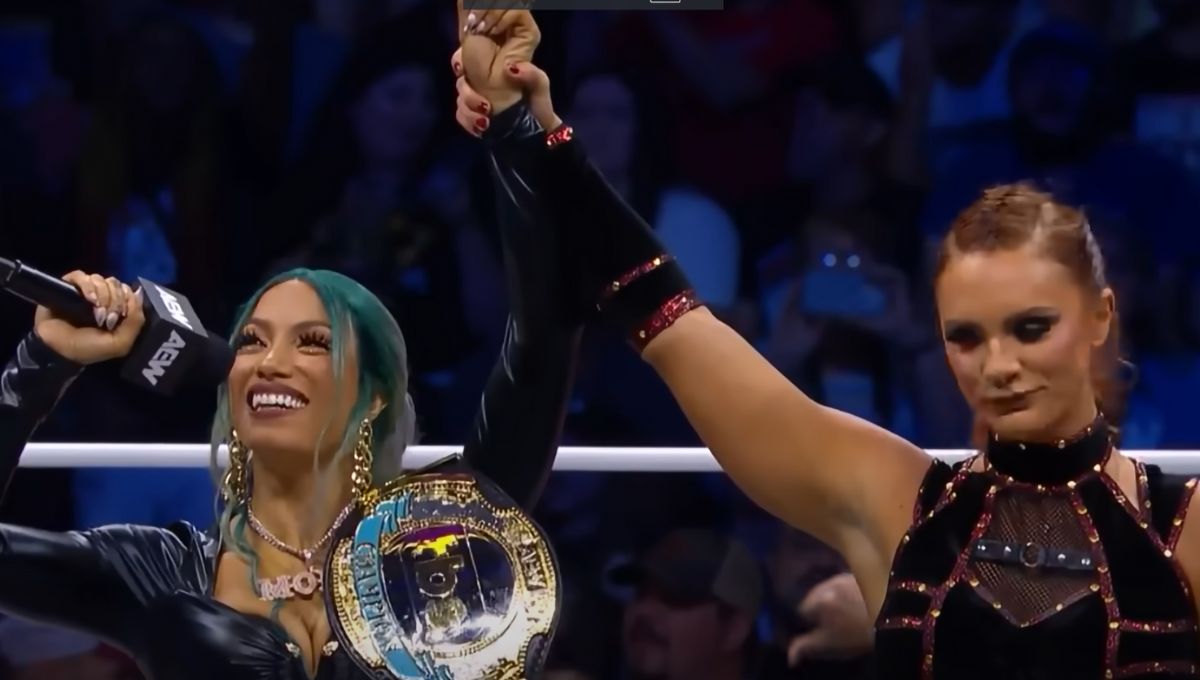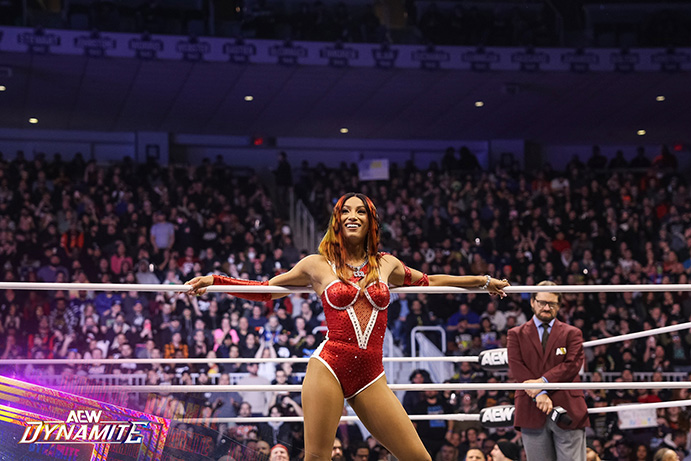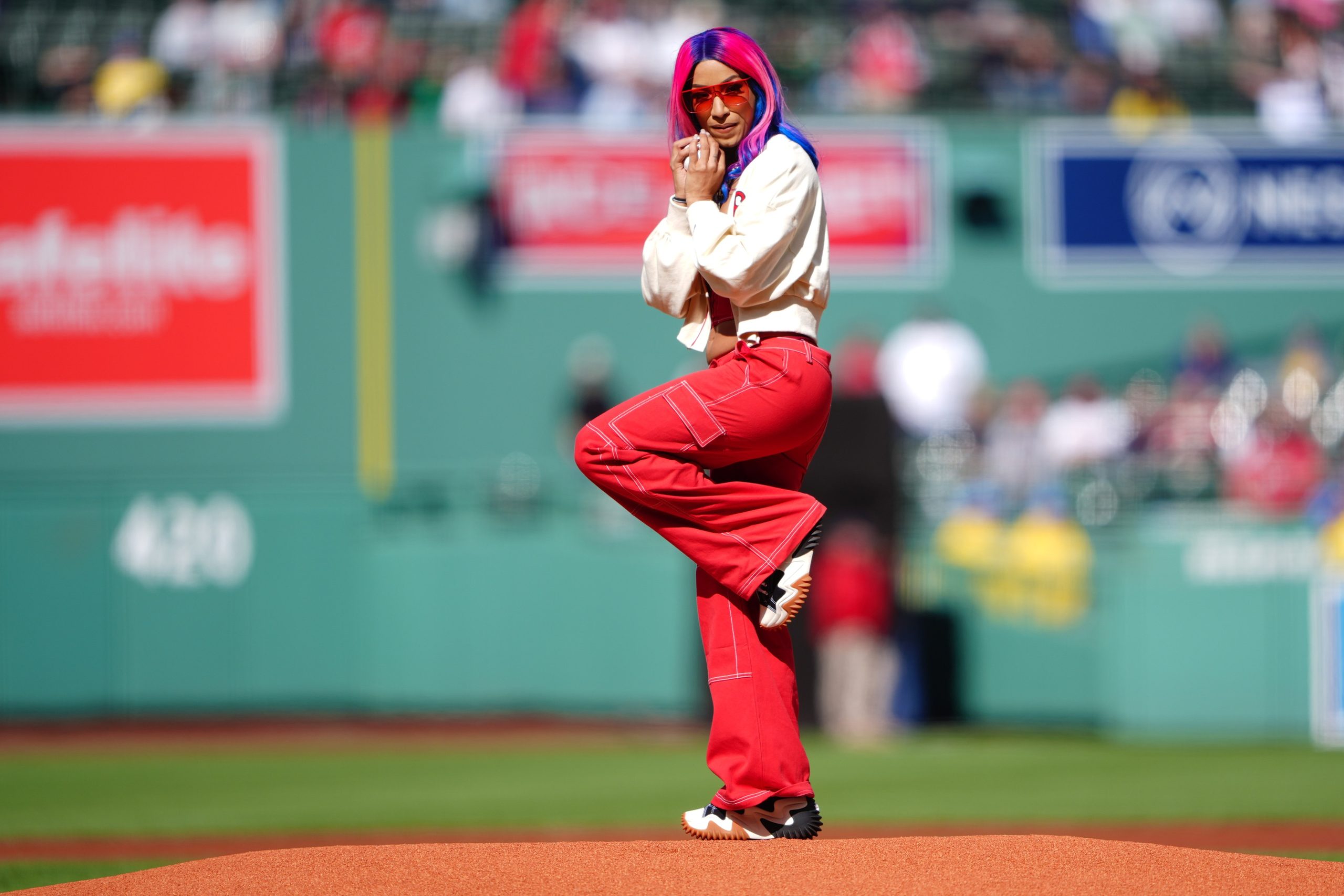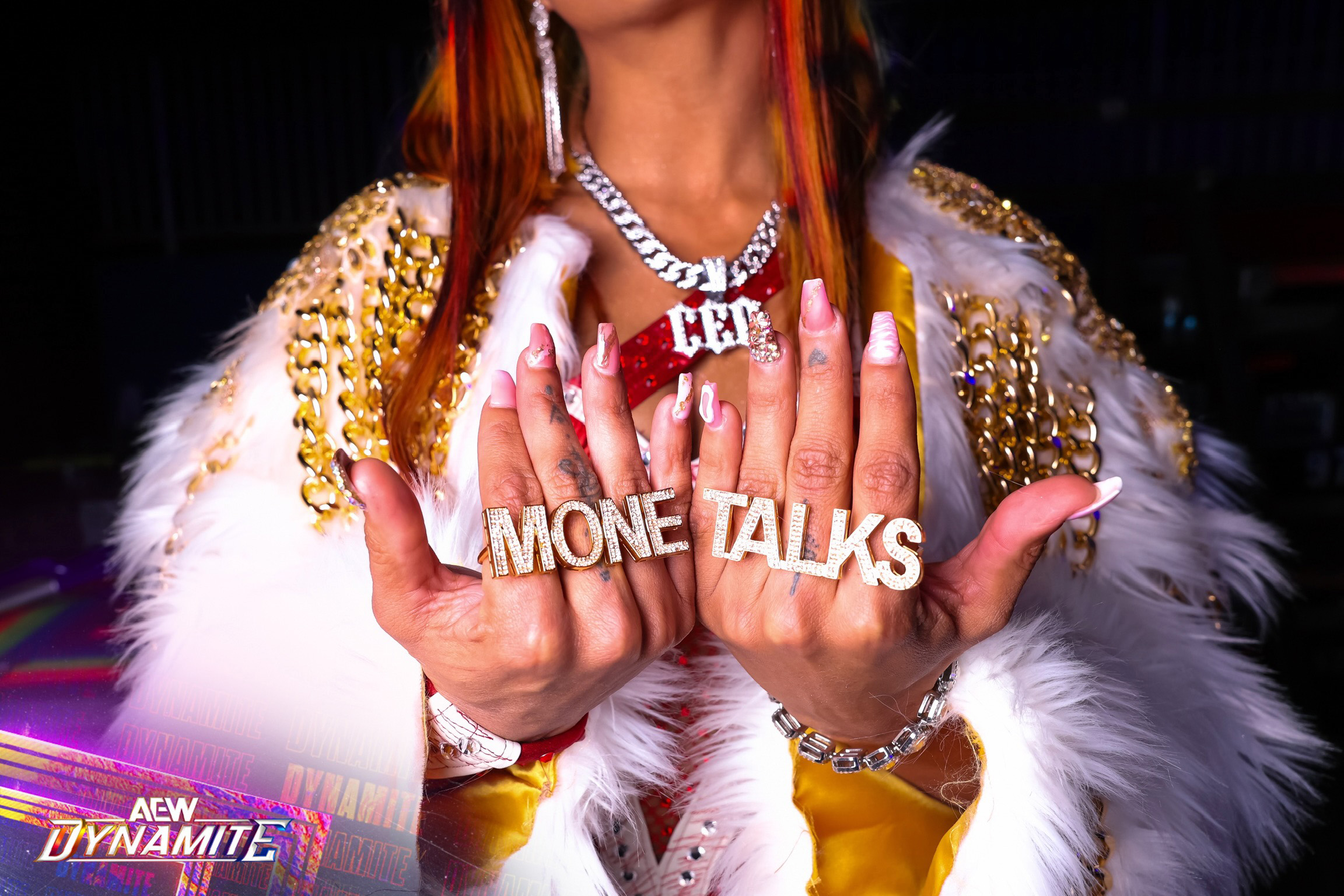I’ve always loved getting involved in more than just what goes on inside the ring. So, when I was in New York and not scheduled to wrestle, I asked Tony Khan if I could sit in the production truck to observe the show. Mike Mansury, whom I’ve worked with since my days at NXT, gave me full access to the AEW truck, and what a great education and refresher it was.
I sat in the production truck for Raw and NXT tapings in the past, but this was my first time with AEW. It was mind-blowing to watch the talent and crew work together to hit their marks, perfectly timing commercial breaks and cutting to the right cameras. As a wrestler, you think about your moves, but there’s so much more that goes into making sure the audience at home (not just the audience in the arena) sees everything the way it’s meant to be seen.
When I say everything is timed, I mean “everything”. It’s a delicate balance between producers, talent, and Tony Khan, who runs the timing of the show. Each segment, every match, everything is calculated to fit into that two-hour window, and let me tell you, hitting those marks is crucial. You can’t have a big in-ring spot running when it’s time for a commercial break—it’s all about precision. And sitting in that truck reminded me of the respect everyone working behind the scenes deserves for pulling off the TV end of things, which, let’s face it, drives most of our business.
You don’t just have to be aware of the TV audience as much as the arena audience. You also must be aware of cameras. Before this experience, I thought there were maybe four or five cameras capturing everything, but I quickly learned there are a lot more than I thought. As a talent, you have to know where your cameras are if you want to perform at your best. The better you understand that, the better you can connect with the audience, especially those watching at home.
People have said that back in the day, Triple H used to like to sit in on production meetings before he even hit his peak as a wrestler. Is there any coincidence that he is thriving in his position today? I read somewhere that Tom Hanks said all actors should direct even once, and all directors should act. Doing so would improve your craft. I’ve also heard my Advocate, Kev, ask actors and producers to sit in on edit sessions, and I get it. When you can understand other key support positions necessary to your success as talent, you elevate in so many ways. You learn to empathize with and understand their struggles and challenges (and you learn you don’t want to be the one to add to them). You also improve as a performer, like I said, learning more of what is required to succeed. Becoming educated on ‘how the soup gets made,’ so to speak, is just empowering overall, opening more career possibilities. One note to fellow talent, just don’t get in the way. Remember, people in these vital support positions have a job to do.




